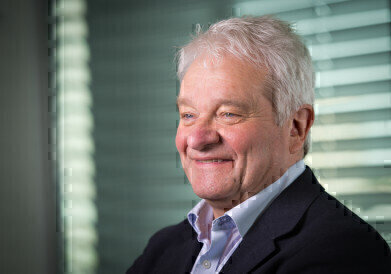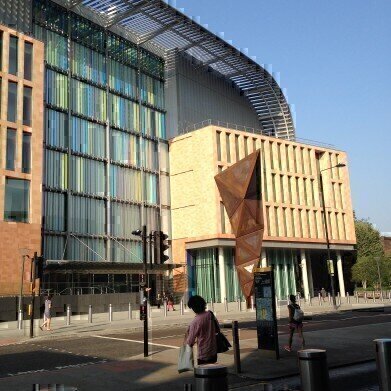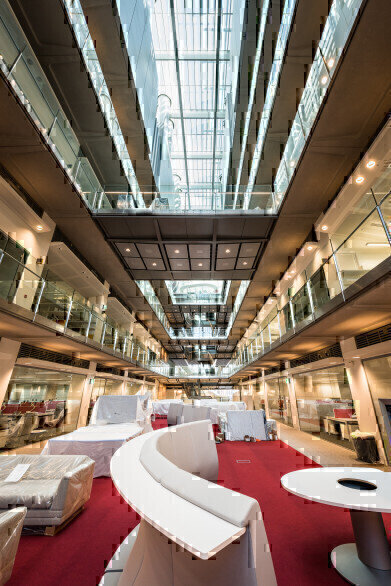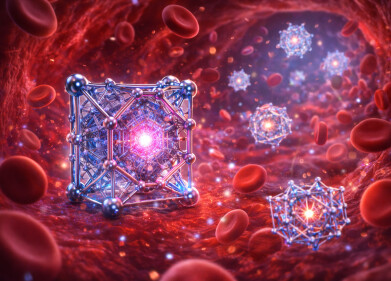-
 Professor Sir Paul Nurse, Director, the Crick. Pic Credit: Fiona Hanson/ap images
Professor Sir Paul Nurse, Director, the Crick. Pic Credit: Fiona Hanson/ap images -

-

News
Science Begins at The Crick
Oct 04 2016
Science is up and running at the new £650 million Francis Crick Institute which since August has seen a continuing influx of scientists and medical researchers setting-up and starting work in the purpose-built labs. Located in the heart of London next to St Pancras station and the British Library, the Crick is one of the world's largest dedicated biomedical research centres, bringing together 1250 researchers from a range of disciplines to discover the basic biology underlying human health and disease. Researchers will continue to move in until the end of the year, along with 250 support staff, with projects ramping up by the start of 2017.
The Francis Crick Institute is a unique partnership between the Medical Research Council (MRC), Cancer Research UK, the Wellcome Trust, UCL (University College London), Imperial College London and King's College London, brought together to identify and nurture new research opportunities and develop strong synergies and novel scientific interactions between its three university founders and other collaborators across the UK.
Its purpose is to discover how and why disease develops in order to find new ways to prevent, diagnose and treat conditions such as cancer, heart disease and stroke, infections and neurodegenerative conditions like motor neurone disease. Scientists will be tackling the pressing health concerns of the 21st century, while boosting UK science and health and helping to drive the UK economy through translational research.
With a strong emphasis on training future science leaders, open collaboration and interdisciplinary working is encouraged throughout the Crick’s impressive built environment, with research groups from different disciplines and different original organisations, sharing highly visible neighbouring laboratories. Coupled with lots of open work space, breakout areas and shared core facilities, this means scientists can't help but bump into each other, have conversations and exchange ideas. It is all expected to lead to the generation of new insight, research directions and innovations. Advanced technology platforms will help facilitate biomedical research at the Crick. These include advanced DNA sequencing and the latest mass spectrometry equipment enabling gene expression, proteins and metabolic pathways to be characterised. Bioinformatics support allows studies involving very large datasets. The robots in the high-throughput screening facility allow tens of thousands of drug candidates to be tested in cells. Electron microscopy, X-ray crystallography and nuclear magnetic resonance suites allow biological structures to be studied in fantastic detail (see also ILM Vol 41 issue 7, Microscopy section).
Public engagement and schools outreach are another focus of the Crick. Dedicated public space with a gallery, café, a large 450-seat auditorium and versatile seminar rooms means the Crick can also run a significant and varied programme of events, talks and exhibitions.
Paul Nurse, Director of the Francis Crick Institute, said: "A remarkable state-of-the-art new home for the Crick has been completed and the occupation by scientists has started. But this is only the beginning. As all our research groups move in over the rest of the year, it will be the discoveries we make here that will establish our place at the forefront of science in London, the UK and worldwide."
David Roblin, Chief Operating Officer and Director of Scientific Translation at the Francis Crick Institute, said: "It is tremendous to have reached the point when science is beginning in our glorious new building. It's been an achievement of many people to this point - in the design, the construction, the fitting out and the project management of moving in people, equipment and experiments. To do this while also running active research programmes across multiple sites speaks to the skill and effort of our staff and supporters. It gives a sense of what we'll be able to achieve once we're all together in our new home."
Further information from www.crick.ac.uk
Digital Edition
Lab Asia Dec 2025
December 2025
Chromatography Articles- Cutting-edge sample preparation tools help laboratories to stay ahead of the curveMass Spectrometry & Spectroscopy Articles- Unlocking the complexity of metabolomics: Pushi...
View all digital editions
Events
Jan 21 2026 Tokyo, Japan
Jan 28 2026 Tokyo, Japan
Jan 29 2026 New Delhi, India
Feb 07 2026 Boston, MA, USA
Asia Pharma Expo/Asia Lab Expo
Feb 12 2026 Dhaka, Bangladesh


















